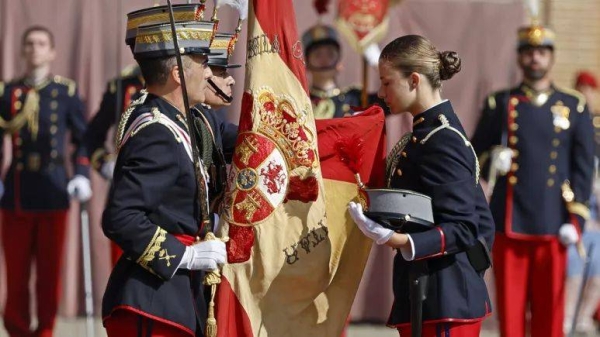
This month marked the first anniversary of the popular demonstrations that last year swept Iraq, from Baghdad to Basra. Largely attended by young people, the protests had demanded sweeping political reform, particularly transparency and accountability in governance.
The demonstrators were targeted mercilessly by militias from the Popular Mobilization Units (PMU): 600 were killed and 26,000 were injured. Criticism from Grand Ayatollah Ali Al-Sistani in November 2019 brought down the government of Prime Minister Adel Abdul Mahdi.
Now, after a lull due to the pandemic, the demonstrators are back in Baghdad, recommencing their protests on Oct. 1 with portraits of those killed last year. Now they have the backing of new Prime Minister Mustafa Al-Kadhimi, who has promised to set up a memorial to those killed in the protests, along with museums, theaters and libraries celebrating national unity and the sacrifices made by the country’s youth.
The major issue facing Iraq relates to the activities of the various Shiite militias that are part of the PMU. The PMU has now splintered, with “moderate” elements backing the government and radical groups wreaking violence against a variety of targets: Shiite youths protesting against the parlous national conditions, Sunnis kidnapped for ransom or murder, Kurdish parties, and, above all, US diplomatic and military targets.
This threat to national recovery encouraged the normally taciturn Al-Sistani to intervene. Last month, he called on the Iraqi government to stop “certain groups from dividing Iraq” by claiming exclusive spheres of control for themselves — a clear attack on militant activity. He also demanded the confiscation of illegal weaponry, action against corruption, and the beefing up of the security services to provide justice to the violated.
Within days of this strident admonition from the nation’s highest religious authority, the US issued its own stern warning. President Barham Salih convened a meeting of Iraqi politicians to say that US Secretary of State Mike Pompeo had warned that, unless the attacks on US facilities ended, Washington would close its embassy in Baghdad and then target the militias concerned. Foreign Minister Hoshyar Zebari called on Iraq’s politicians to confront the “challenges posed by armed militia” so that Iraq can “stop this carnage and act responsibly.”
Here, the split among the PMU has become apparent. The head of the PMU, Falih Al-Fayyadh, condemned all attacks and affirmed that the organization is a legal security force under the national armed forces. He was backed by Hadi Al-Amiri, head of the Fatah bloc, who criticized the recent attacks on US and British targets and demanded protection for all foreign missions. Four militias that were part of the PMU have broken away and asked to join the state forces. Across the border, Iranian Foreign Minister Javad Zarif praised Al-Sistani’s remarks, while the Foreign Ministry condemned the attack on a British convoy.
However, the radical militias remain unmoved. A spokesman for Asaib Ahl Al-Haq justified the attacks on the US Embassy, saying the building is “a military base of an occupying force.” By the end of September, there had been fresh attacks on a US facility at Baghdad airport, which erroneously hit a nearby home, on US troops in Irbil and on positions held by the Iranian Kurds, who are described by Tehran as terrorists.
Besides foreign targets, the wrath of the militants has also been directed at domestic enemies. On Oct. 17, members of the PMU burned the Baghdad headquarters of the Kurdistan Democratic Party (KDP) in response to the call of Foreign Minister Zebari, who is a Kurd, that the capital’s official and diplomatic Green Zone be “cleansed from the militias and the PMU presence.”
Two days later, there were reports of 12 people from the Sunni-majority Salahuddin province being kidnapped and then killed, most probably by members of Asaib Ahl Al-Haq. This has created fears of a renewal of the sectarian violence that overwhelmed the country a decade ago. Members of parliament from the province have jointly demanded that all militants linked to the PMU and political groups be removed.
There are fears of a renewal of the sectarian violence that overwhelmed the country a decade ago.
Talmiz Ahmad
This seems to be a tall order. Prime Minister Al-Kadhimi has shaken up the security services with new appointments, roping in a former interior minister as his national security adviser and a former defense minister as head of intelligence operations. He has also initiated a crackdown on illegal weapons in the Shiite-dominated southern provinces. However, despite his enthusiasm, progress has been slow, with reports that Al-Kadhimi lacks the clout to take on the militias and the arms traders.
A confrontation seems to be brewing between the new security officials around Al-Kadhimi and sections of the Shiite parliamentary blocs and the militias that back them, with the latter seeking to emasculate the prime minister or get him out of office.
Outside the country’s venal parliament, Al-Kadhimi enjoys considerable support and, in a reformed political order, he should obtain popular backing in elections scheduled for June next year. However, the journey to those elections will be along a tightrope over a dangerous swamp.
Talmiz Ahmad is an author and former Indian ambassador to Saudi Arabia, Oman and the UAE. He holds the Ram Sathe Chair for International Studies, Symbiosis International University, Pune, India.
Disclaimer: Views expressed by writers in this section are their own and do not necessarily reflect Arab News" point-of-view











